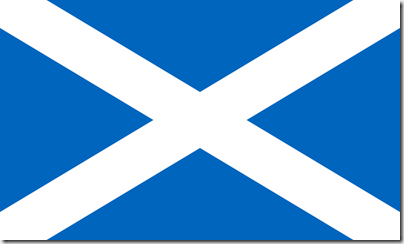On Thursday 18 September, Scotland will vote on independence. This wikipedia article provides a good introduction. 
I have mixed feelings on the vote. I am not sure that full independence is in Scotland’s best interests. However, two things are important from a New England self-government perspective.
The first is that Scotland has already achieved the thing that we have been fighting for, self government within Australia. They did so despite continued opposition from Westminster and the established elites.
The second is that the vote on independence is treated as the self-evident right of the Scots to make their own decisions.
We New Englanders are entitled to no less. If we take control, we will certainly make mistakes, but they will be our mistakes. We will have only ourselves to blame.
Surely it is not too much to ask to give us another vote? Are we to be treated as less than the Scots? After all, it is our right too.












2 comments:
Jim, I cannot imagine why the Scots would pass up a once in three hundred years opportunity to be in control of their own destiny. The same thing could be said of the New England vote in 1967, and yet that is precisely what happened.
The thing that stands out about the No campaign is always the negativity. There is never anything positive about saying No. It is always based on fear of the unknown and fear of loss of a good thing. That was the case in 1967 and it seems to be the case again now in Scotland.
The negatives in New England came true anyway (eg. the Hunter dairy farmers could not be legally excluded from Sydney markets as the No fear campaign would have voters believe, but they lost their market position anyway). We got the negatives with none of the positives that self government would bring. Administration continues to contract towards the capital while Newcastle and other major centres in the north become just branch offices with little influence on the decisions that affect them most directly.
Grev, my apologies for this very slow response. In Scotland, the yes case lost, but they had already achieved the things that we want to achieve. Negativity does indeed rule.
Post a Comment